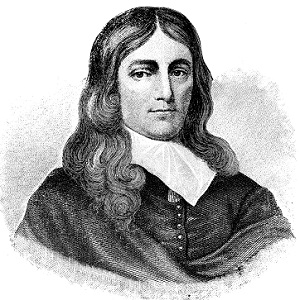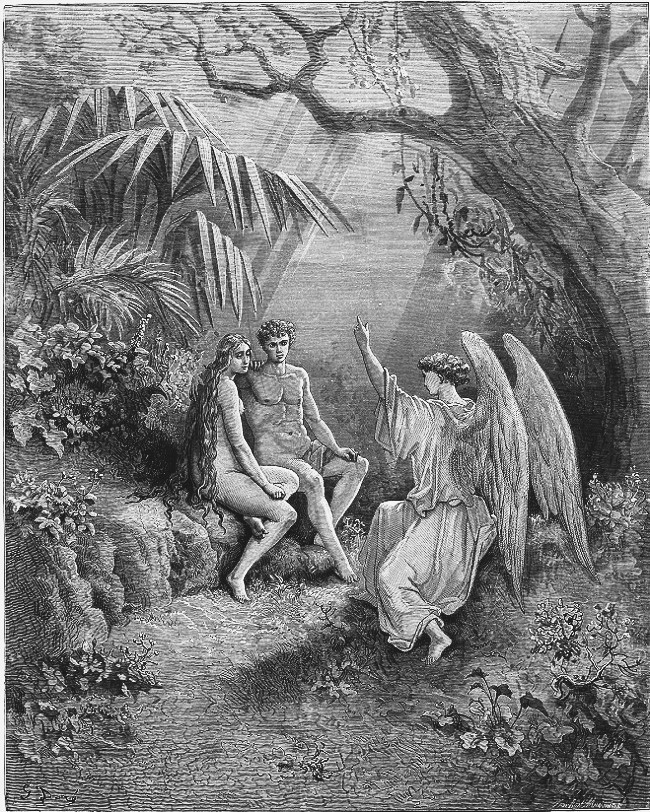Mar 31, 2025
Mar 31, 2025
Epics-11
Paradise Lost: Milton's Magnum Opus
Poetry is what Milton saw when he went blind. - Don Marquis
 John Milton (1608–1674) was an English poet and scholar who is regarded as one of the English language's greatest writers. He is well known for his epic poem Paradise Lost, which depicts the fall of man. The poem, written in blank verse and divided into twelve books, examines themes of rebellion, human disobedience, Satan's fall, and the loss of Eden. "Paradise Lost" is one of the greatest triumphs in epic poetry, with its broad scope, majestic language, and complicated characters.
John Milton (1608–1674) was an English poet and scholar who is regarded as one of the English language's greatest writers. He is well known for his epic poem Paradise Lost, which depicts the fall of man. The poem, written in blank verse and divided into twelve books, examines themes of rebellion, human disobedience, Satan's fall, and the loss of Eden. "Paradise Lost" is one of the greatest triumphs in epic poetry, with its broad scope, majestic language, and complicated characters.
Milton was also a prolific prose writer whose works on politics, religion, and education had a long-lasting influence on English thought. Milton was born into a rich Puritan household and attended Cambridge University for his classical education. After graduation, he spent several years in Italy studying the writings of the great Italian poets. When he returned to England in 1639, he started writing poetry and prose seriously.
Milton was a staunch supporter of the Puritan Revolution and worked for the Commonwealth of England as a public servant. Milton was imprisoned for his political ideas upon the restoration of the monarchy in 1660, although he was ultimately released. He retired and spent the remainder of his life penning Paradise Lost and other works.
Milton's poetry is distinguished by its beauty, grandeur, and cerebral profundity. His vocabulary is rich and evocative, and his imagery is vivid and compelling. Milton's poems cover a wide range of topics, including human nature, good and evil, and God's connection with humanity.
Milton's works had a significant impact on English literature and culture. His poetry has been translated into numerous languages and transformed into operas, ballets, and films. Milton's ideas have also influenced philosophy, theology, and politics. Milton's works are complex and difficult to understand, yet they are also tremendously gratifying. They provide a one-of-a-kind and profound insight into the human experience.
Some of his other works are:
1. Paradise Regained (1671):
A sequel to Paradise Lost, which tells the story of Christ's temptation in the wilderness.
2. Samson Agonistes (1671):
A tragedy based on the biblical story of Samson.
3. Areopagitica (1644):
A pamphlet defending freedom of speech.
4. Of Education (1644):
A tract on the importance of education.
5. Of Reformation Touching Church-Discipline in England (1641):
A pamphlet arguing for the reform of the Church of England.
Let us take a look at the most important parts of Milton's masterwork Paradise Lost, and its lasting effect.

Historical and Literary Background: To fully appreciate "Paradise Lost," one must first comprehend the historical and literary context in which it was written. Milton lived in England during a time of significant political and theological upheaval. The English Civil War, the Interregnum under Oliver Cromwell, and the eventual restoration of the monarchy occurred in the mid-17th century. These volatile times had a significant impact on Milton's political and religious beliefs, which are represented in his epic poem. Milton was also influenced by earlier literary traditions, such as the works of Homer and Virgil, as well as the biblical narratives of Genesis and Revelation. However, "Paradise Lost" is not a mere replica, but a uniquely English epic that addresses religious issues and the nature of humanity.
Themes in Theology and Philosophy: "Paradise Lost" is primarily concerned with theological and philosophical issues of the Christian faith. The poem opens with Satan's fallen angels rebelling against God and being sent into Hell. It then moves to the Garden of Eden, where the first humans, Adam and Eve, are tempted by Satan and finally fall from grace. The poem delves with the concepts of free will, predestination, theodicy (the problem of evil in a universe created by an all-powerful God), and the repercussions of disobedience. Satan, a complex and terrible figure, plays a prominent role in the poem. His disobedience of God, as well as his hubris, make him a captivating and ethically problematic character. Milton addresses the concept of the "heroic rebel" and the attraction of disobedience against authority through Satan.
Style and Language: Milton's use of blank verse (unrhymed iambic pentameter) in "Paradise Lost" is a notable break from preceding epic poetry's rhymed heroic couplets. This format offers for more freedom and a more natural flow of language. Milton's verse is distinguished by its grandeur, rhythm, and eloquence, evoking awe and majesty appropriate to the subject matter.
Influence and Legacy: "Paradise Lost" has a significant impact on future literature, theology, and culture. Readers continue to be moved by its investigation of human nature, morality, and the fight between good and evil. Numerous literary and creative interpretations of Satan have been created. Milton's epic has also sparked theological debate and meditation, particularly on theodicy and the essence of evil. It has also left an imprint on popular culture, with references and adaptations appearing in a variety of media.
Here are few verses from "Paradise Lost" along with their meanings:
Of Man's First Disobedience, and the Fruit
Of that Forbidden Tree, whose mortal taste
Brought Death into the World, and all our woe,
With loss of Eden, till one greater Man
This is the poem's invocation, in which Milton asks his muse, the Holy Spirit, to inspire him to sing about the Fall of Man. The first line introduces the poem's theme, Adam and Eve's transgression and the repercussions of their sin. The second line relates to the Tree of Knowledge of Good and Evil, which is the forbidden fruit. The third phrase describes the ramifications of Adam and Eve's sin, which include death and banishment from Eden. The fourth phrase anticipates the return of Christ, who will redeem humanity from sin and return it to paradise.
High on a hill, far blazing, as a mount
With fire among the clouds, from Sinai
Shone: but all else dark and silent. Round about
The bless'd inhabitants their watch they keep,
This verse depicts the scene of Satan's ascension from heaven. Satan, along with the other rebel angels, is hurled down to Earth. They fall on a desolate mountainside surrounded by darkness and quiet. The only light comes from the hellfires visible in the distance. The chapter expresses Satan and his minions' emotions of desolation and despair upon their fall.
Adam the while, Waiting desirous her return, had wove
Of choicest flowers a garland to adorn
Her tresses, and her rural labours crown,
As reapers oft are wont their harvest queen.
This section details Adam's preparations for Eve's return from her garden labour. He creates a flower garland to adorn her hair and crown her as the garden's queen. The chapter demonstrates Adam's love and admiration for Eve, as well as his desire to make her happy.
To conclude, Paradise Lost is a colossal work of epic poetry that blends serious religious research with literary craftsmanship. The study of eternal concerns regarding mankind, morality, and the human predicament gives it enduring importance. Milton's depiction of Satan as a complicated and tragic entity forces readers to confront the complexity of good and evil. Paradise Lost is a masterpiece of world literature and a tribute to the continuing power of epic poetry, with its majestic language and thought-provoking ideas.
Continued to Next Page
Images (c) istock.com
23-Sep-2023
More by : Dr. Satish Bendigiri